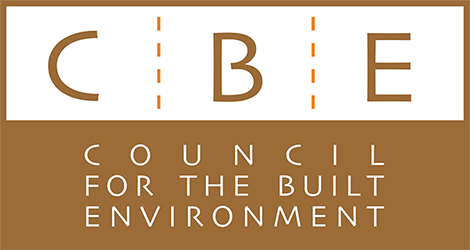CBE Reaffirms Its Commitment to Drive Climate Change as Part of Urban Development in SA
The impact of climate change is already felt across the globe, manifesting in unprecedented droughts, floods, bush fires, and other extreme weather events. South Africa has also bared the brunt of such with reference for example to the recent floodings in KwaZulu-Natal, Mpumalanga, North West and Port St Johns. This state of affairs will only intensify as the world continues to get warmer. The effects of climate change will take the harshest toll on the world’s most vulnerable communities.
To mitigate the impact of climate change, urgent action is needed to reduce greenhouse gas emissions, improve climate resilience and rethink urban development approaches. This will require significant and unparalleled changes across all sectors of the society, especially the built environment. Importantly, the transition to sustainability must be just and equitable practices in ensuring that the poorest and most vulnerable are supported and uplifted in a more sustainable manner.
“Climate Change is one of the key challenges facing the Built Environment sector and remains one of the priority areas for National Government and viz the CBE. The status of an un-sustainable practices not only affect the Built Environment sector but directly impacts on public safety and the natural environment. As such, the CBE recommits itself to drive sustainability agenda within the built environment for a better future for our country” said Dr Msizi Myeza .
As a response the CBE has established the Environmental Sustainability Transformation Collaborative Forum which is a platform to discuss issues of climate change, promote mitigation measures and sustainable development practices. Moreover, the CBE will be hosting its inaugural Built Environment Sustainability Seminar on 04 April 2023 under the theme: “Past – Present – Future Mirror”. The seminar will be attended by the built environment professionals, academia, private sector, and the general public at the Sustainability Institute at the University of Stellenbosch in Western Cape.
The outcome of the seminar will put forward cogent recommendations and solutions from multi-dimensional perspectives. The Built Environment Sustainability Seminar will also serve as a platform for collaboration among role-players, synergy in our approach, transparency in terms of all role-players involved, and resolutions on the way forward.
The seminar will greatly contribute to the development of a Broad-Based and Long-Term Sustainability Strategy for the Built Environment Sector and the profession and are envisaged to feed into the operations and functions of the CBE’s Transformation Collaborative Forums on numerous levels. More specifically, outcomes from the seminar will greatly contribute to developments in terms of the COP 27 Agenda and the presidential Climate Change Commission.
“We will continue to work with built environment professional Councils in finding innovative, transformative and people-centred interventions as a contribution to a broader government programme” said, Dr Myeza.
